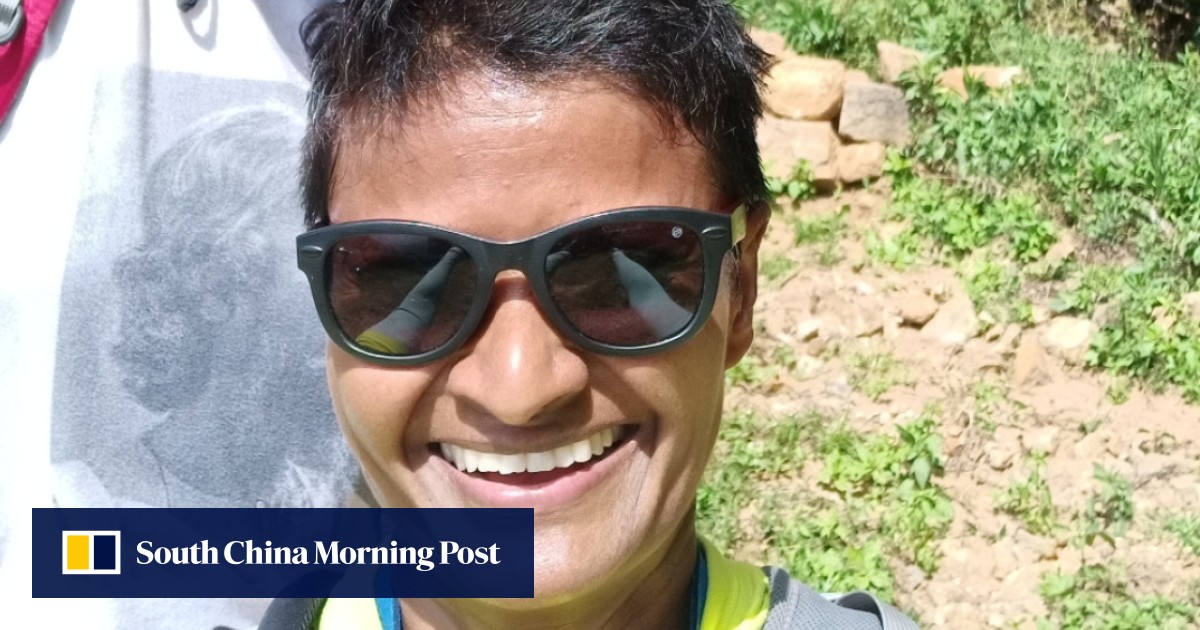The first person from Sri Lanka to summit Mount Everest wants the world to know that it was not a man who achieved the feat.
Jayanthi Kuru-Utumpala is a passionate mountaineer, and an advocate for women’s rights. She was named one of the most influential women in the country by the Sri Lankan government in 2019.
This summer, she trekked part of the Pekoe Trail – a new route that winds through more than 300km of the Central Highlands, a Unesco World Heritage site in Sri Lanka. It was, she says, an adventure combining the two things she cares about most: mountains and gender equality.
Funded by the European Union with additional support from the US Agency for International Development in support of Sri Lanka Tourism, the Pekoe Trail has 22 stages. Kuru-Utumpala walked four of them – 13 to 16, mostly on small footpaths, with a few overgrown sections – over four days while staying at community-focused properties, visiting an ethical tea plantation and promoting gender justice in Sri Lanka’s tea industry.
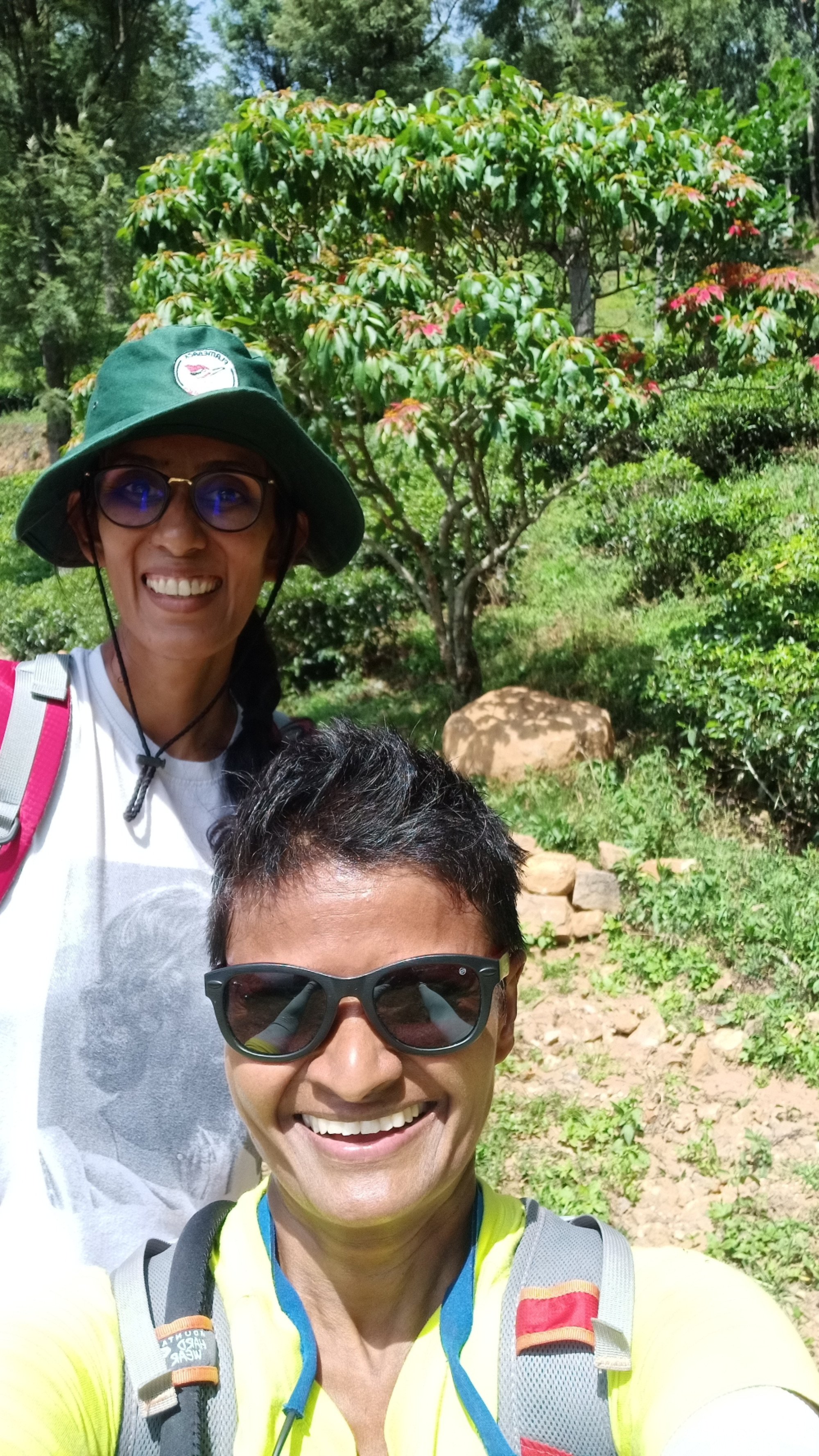
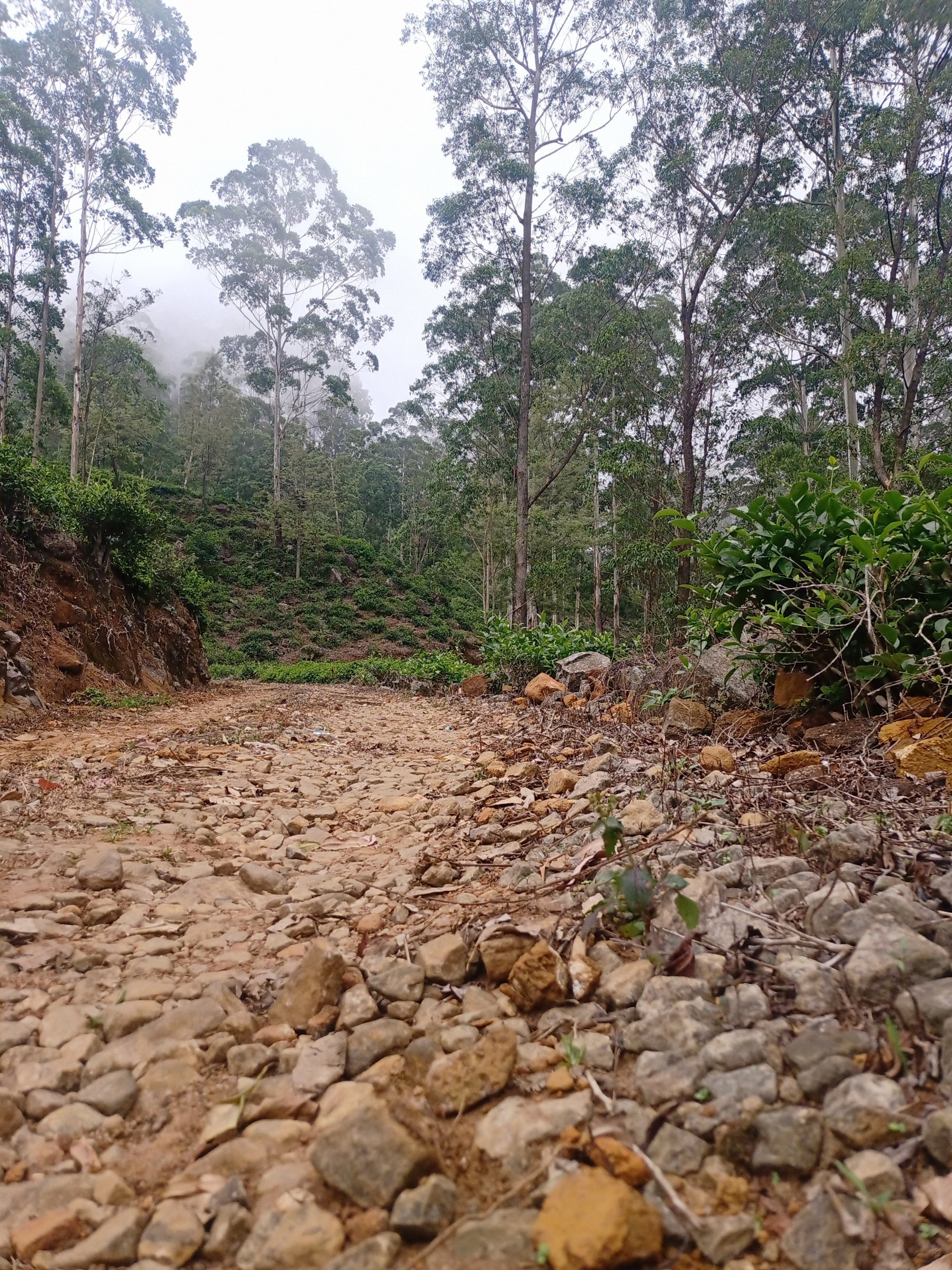
Stages 13 to 16 of the Pekoe Trail are the ones most accessible from the Amba Estate, which hosted Kuru-Utumpala’s trip and which, according to the adventurer, is an “an exception to the norm” that is “really changing the game” in terms of gender equality and ethical practices.
The Amba Estate doesn’t just produce organic tea, it also operates a guest house. Kuru-Utumpala stayed in a “small, but cosy and comfortable” room in what was once the main house of the estate, which was built around 100 years ago by one of the first local families to develop their own tea business.
Like sailing back in time: from Malta to Sicily by yacht
Like sailing back in time: from Malta to Sicily by yacht
“When the British introduced [commercial tea cultivation] to Sri Lanka, they brought indentured labourers from South India, who didn’t receive a salary – essentially slaves,” she says. “I wouldn’t say that things have changed much, as many workers are still being exploited in some estates across the country.”
The gender wage gap is a huge issue in the region’s tea estates, adds Kuru-Utumpala, citing the common practice whereby women work from 9am to 5pm and men from 7am to 10am, but both get paid the same.
Another unfair, yet widespread practice in Sri Lanka’s tea industry is the hiring of employees according to their gender. Traditionally, women are seen as having nimble fingers, which makes them better for plucking tea leaves. “A nonsense stereotype,” Kuru-Utumpala says.
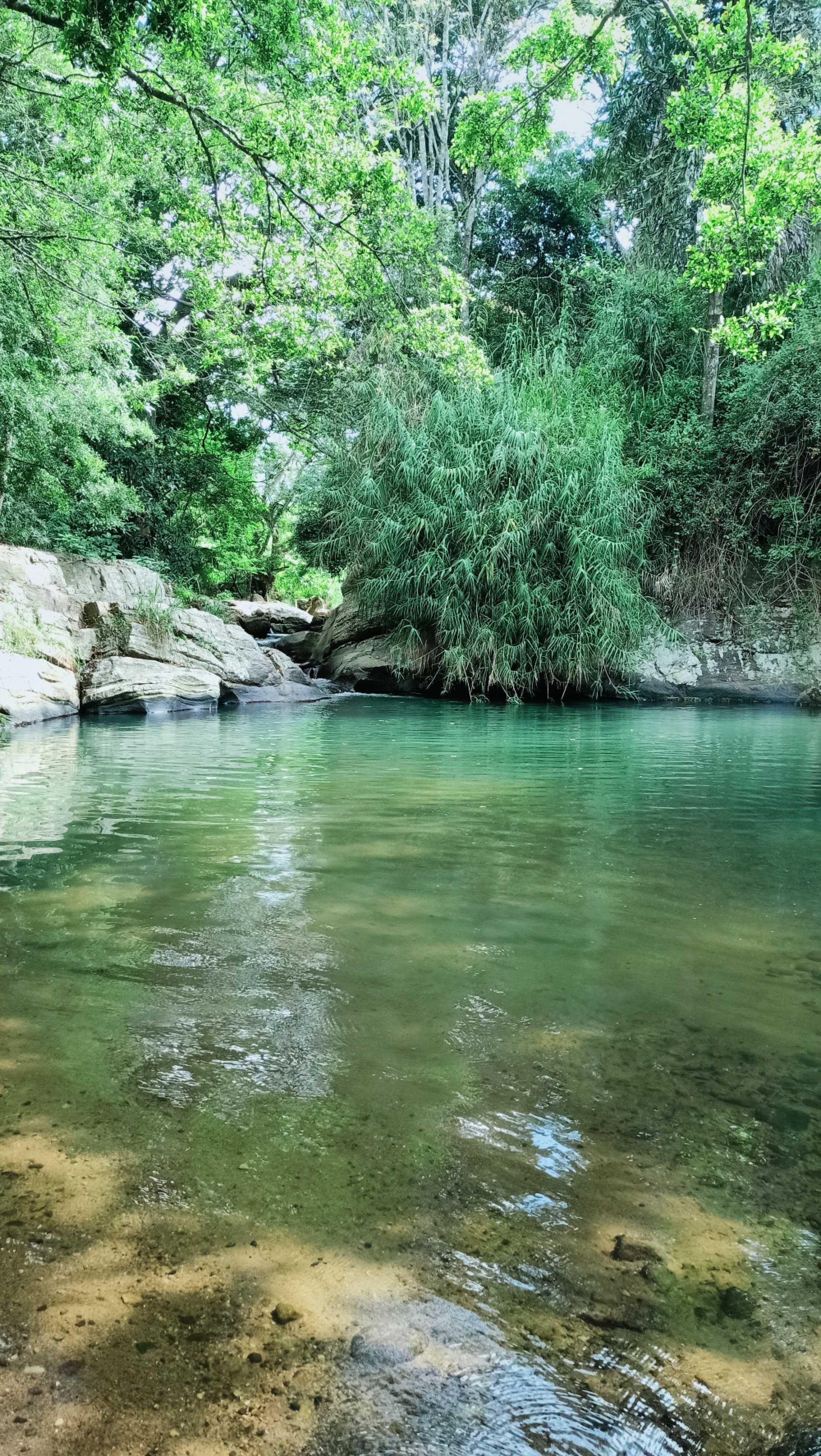
“Another major stereotype is that the supervisors are always men. Again, that does not need to be the case. Times are changing, and you cannot continue to undervalue women’s roles or treat them as lesser beings.”
At Amba Estate, women are included at the managerial level, taking two of the five seats.
“Normally, if you’re a plucker, you’re just a plucker. You don’t even know what happens to the tea beyond that point. But at Amba, everybody knows how the tea is plucked, how it’s processed and what happens from the tea leaf to the cup.
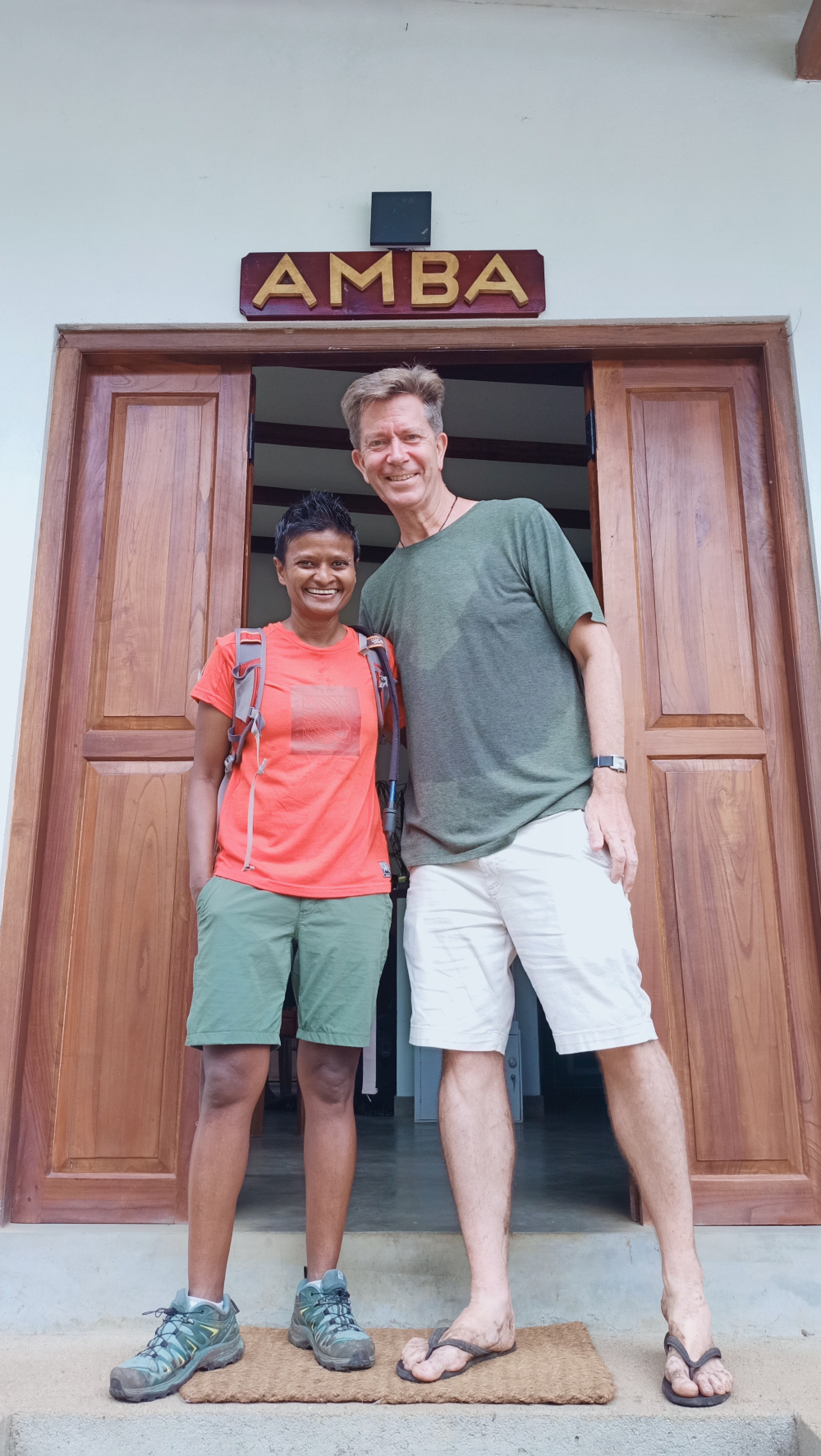
“This education is important for the employees to understand the value of the tea,” says Kuru-Utumpala.
“It’s maybe the only tea estate with a waiting list of people wanting to work there.”
She adds: “Some of the other estates are losing people [ …] the younger generation is beginning to realise the exploitative nature of the industry.”

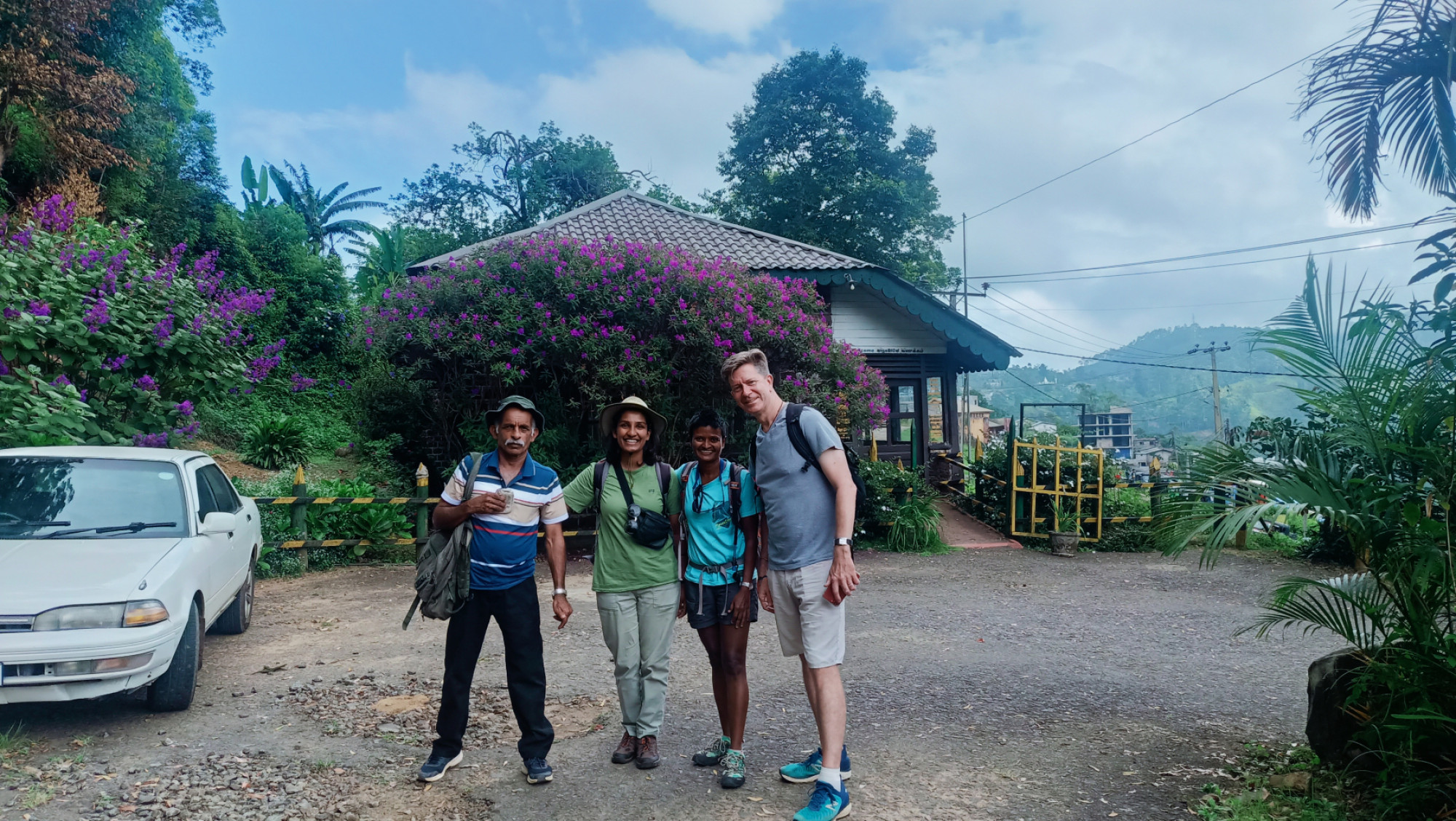
On her trek, the adventurer met 26-year-old entrepreneur Pabasara Manathunga. Her company, Samanala Farm, produces artisanal teas and herbal infusions that are exported as far afield as Singapore and New Zealand, and Manathunga has created rural employment opportunities for other women in the region.
“I was really inspired by her story because she’s from the rural town of Haputale, where stage 13 of the Pekoe Trail begins, and not an urban city, where you have more access to opportunities,” says Kuru-Utumpala.
“She, her father and her sister all joined us on the trail, and her father was from the area, so he had a lot of knowledge regarding the history of trees and the various sites we passed.”
Kuru-Utumpala walked from the small village of Liyangahawela, “where you can observe the locals farming, on neatly laid-out terraces, vegetable plots of leeks, carrots, turnips, cabbage and lettuce”, past an abandoned shelter with “a stunning view”, an ancient Hindu temple and a eucalyptus forest.
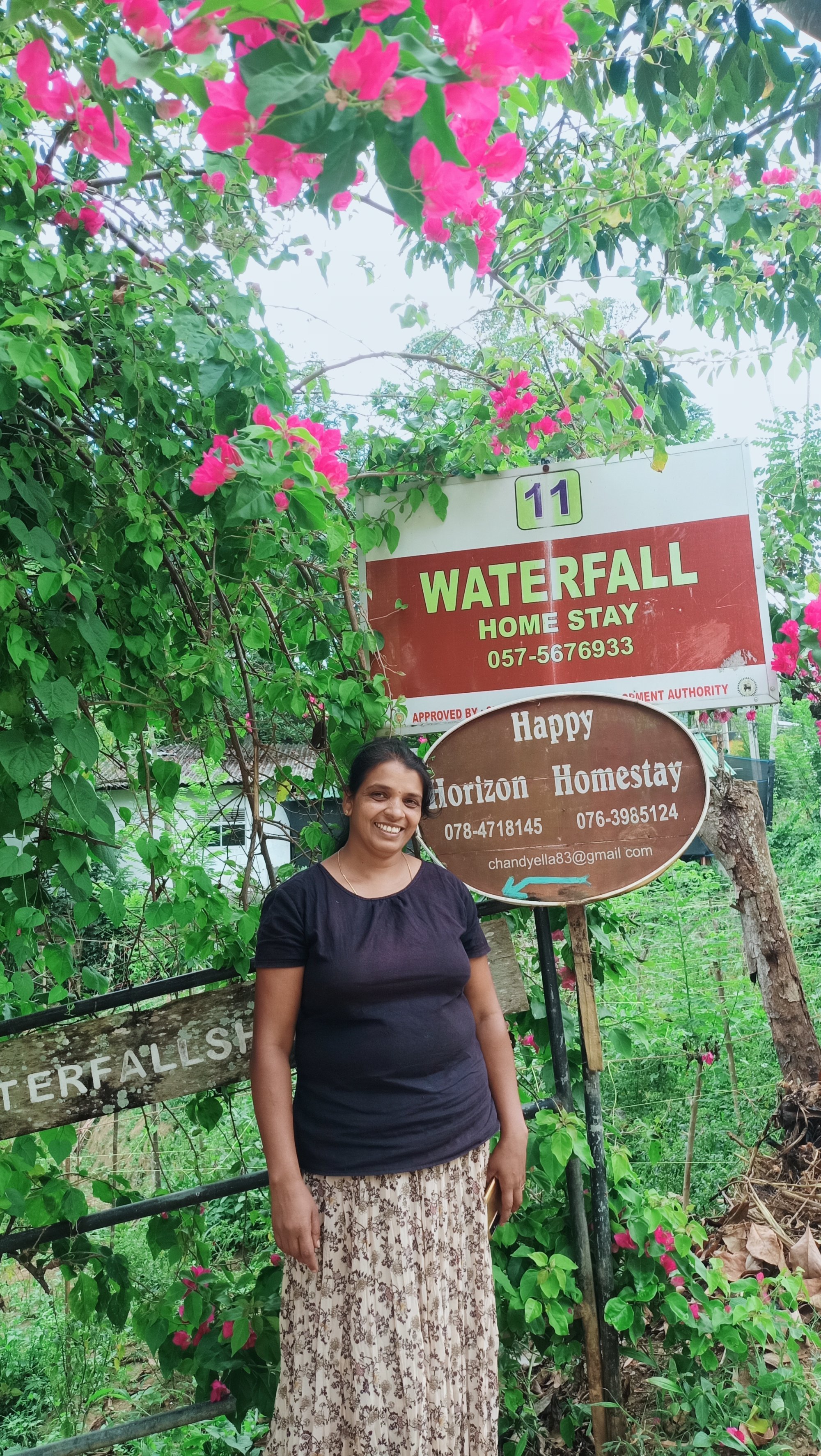
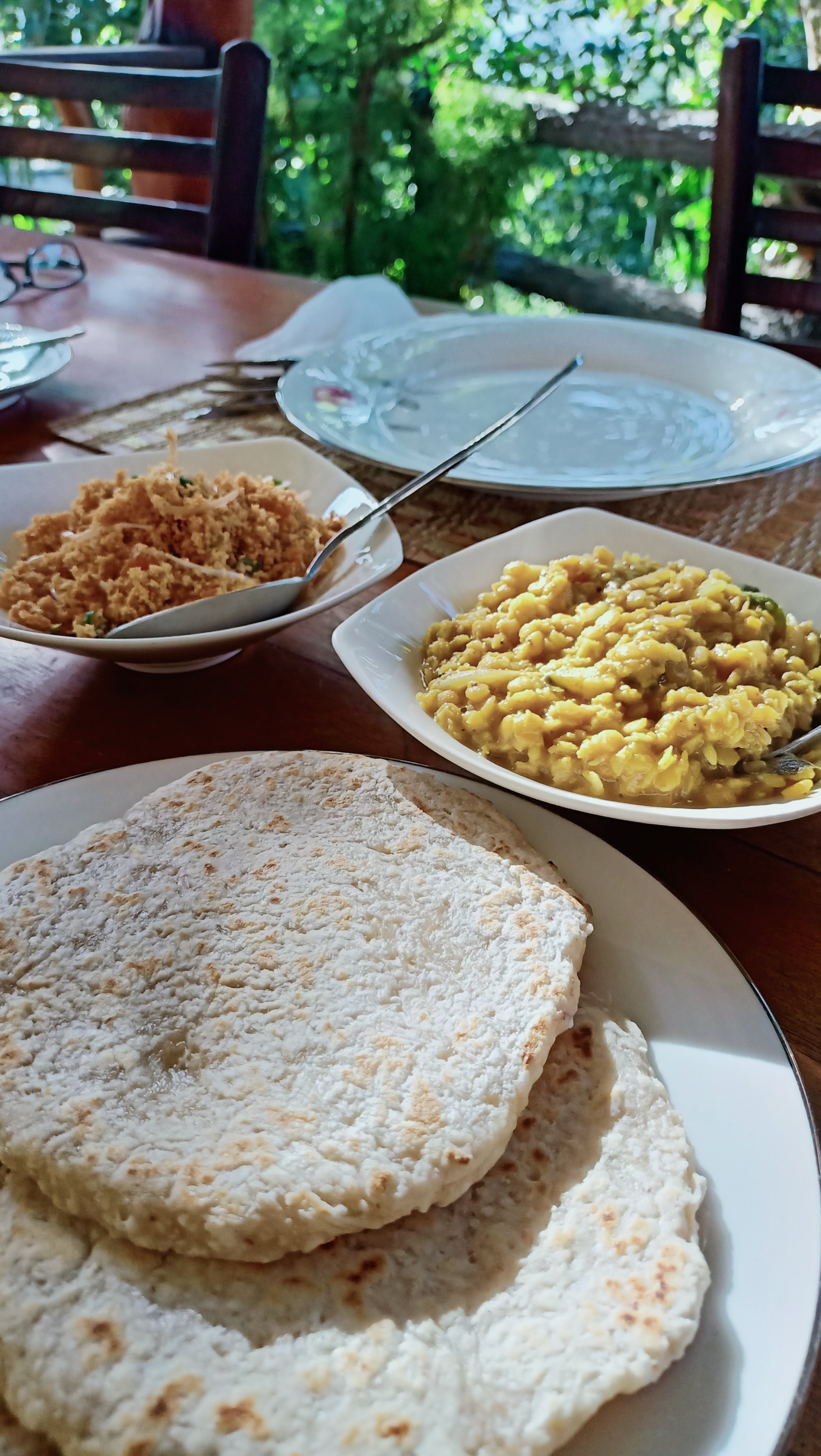
She also spent a night at the Happy Horizon Homestay, in the small town of Ella.
“The homestay concept is different to a guest house. It’s more homely and you get to interact with the family.
“Chandrika Sriyani, the host at Happy Horizon, started because of Karen Robertson, an Australian-born woman who had lived many years in Sriyani’s village.”
Robertson had begun renting out a room or two in her own house to guests, and when the neighbouring women caught on, she taught them how to set up their own homestays.
Robertson’s Waterfalls Homestay is next door to Happy Horizon.
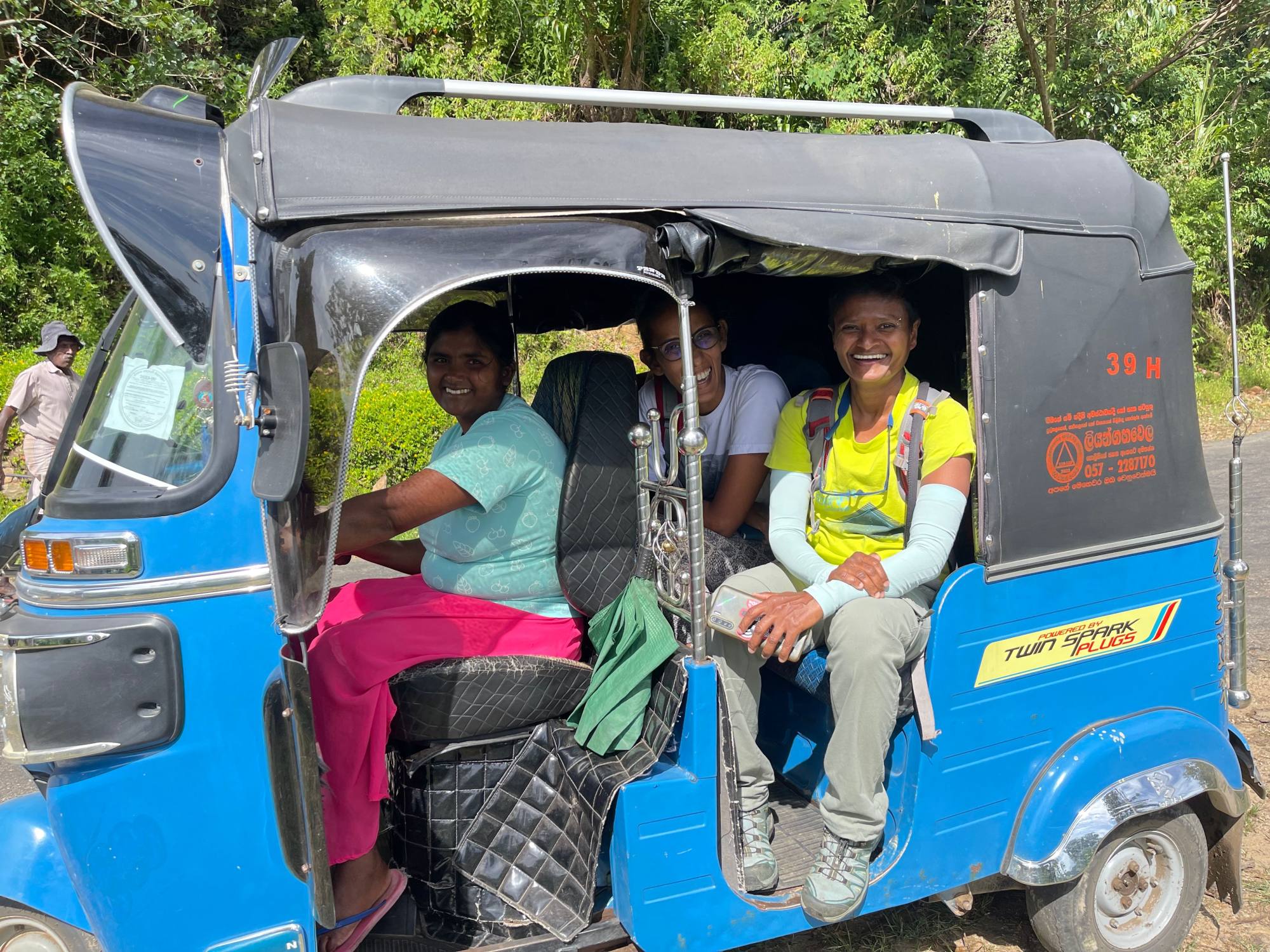
“It led to a whole community of women running homestays in their houses. Now, years later, many women are doing this independently as one of their families’ main income sources,” adds Kuru-Utumpala. “It’s something the husband and wife would do together, too.”
Kuru-Utumpala says women’s rights have been her focus for 20 years, and she wants to see the stories of more local women championed.
“I will always talk about gender stereotypes and bring a gender narrative into the story, because so many girls and boys have come up to me and said that my story and my journey have inspired them to follow their dreams, regardless of what society tells them.
“We can all climb our own mountains.”

